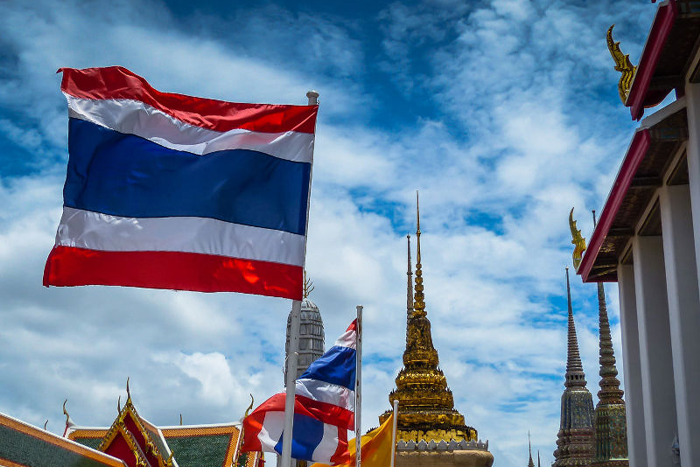May 2017 |
A number of our members and friends asked my views about the recent elections for the Governor of Jakarta. I thought to share some observations and points from recent discussions with politicians and analysts in Jakarta.
Ahok’s defeat was not unexpected, given the controversy after his remarks about Islam. Many commentators have focused on religious factors. But his defeat has also introduced new questions about the Jokowi administration’s ability to garner sufficient support for reform, and the possible resurgence of those opposed to the President. Against this background, may we offer the following points:
1. The Use of Religion: Indonesia has portrayed itself as a country with a largely moderate Muslim middle ground, associated with Nahdlatul Ulama (NU) and Muhammadiyah. So the rise of the hard-line Islamist group, The Islamic Defenders Front (FPI) surprised many. Many are concerned about the religious tide continuing. We would, however, point out that religion was used and sustained by political opponents of the President in a proxy fight. Political actors are using religion as a means to achieve their own ends. While race and religion are issues of concern, the election should not be seen as reflecting genuine religious anger from the grassroots.
2. The Return of the Traditional Elites: Remember that President Jokowi – coming from outside the capital, and not beholden to the military or any particular party or group – represents a challenge to the Jakarta elites. A reform agenda for greater transparency, cleaner government and foreign investment has upset the status quo. In 2016, before the election campaign, he was gathering strength in Parliament and among various parties. The Jakarta governor election presented an opportunity for the traditional elites to push back against him.
3. Who Gained: The winning candidate, Anies Baswedan was backed by Prabowo and his Gerindra party. Prabowo had lost the 2014 presidential election and Gerindra forms the main opposition in the Parliament. Up to the Jakarta elections, they had lost ground to Jokowi. Now, President Jokowi’s defeat seems possible. Watch for elections next year in Central Java, West Java, and East Java. These largest constituencies will be barometers for the Presidential contest in 2019.
4. Outlook for 2019 Presidential Elections: Many believe that Anies harbours presidential ambitions. There is talk that Jokowi had Anies replaced as Minister of Education and Culture in the July 2016 shuffle due to his ambitions. It is not clear whether Anies will have support to run in the 2019 elections. His chief backer, Prabowo continues to have Presidential ambitions for himself. Publicly, he has “encouraged” Anies to see through his five-year term as Jakarta governor (as has, former National Mandate Party (PAN) chairman Amien Rais). For Anies himself, having switched camps, he will want to keep his options open if he can garner popular support during his Governorship.
5. How will President Jokowi Respond? Following this set back, President Jokowi will give more attention to coalition management. His coalition will face another challenge soon because both Golkar and The Indonesian Democratic Party of Struggle (PDI-P) are implicated in the ongoing corruption case involving the national electronic identity card (e-ID) project, where several politicians are standing trial for embezzlement. These charges may likely hurt those who are working with Jokowi and this can hurt this ability to push things through parliament (only with Golkar’s support did the president’s coalition achieve 62 percent majority in parliament seats). A realignment within Golkar could impact Jokowi’s coalition. Although Vice President Jusuf Kalla may gain from such a realignment, his relationship with the President is said to be strained and it is not clear that he will deliver Golkar’s support (note that the Vice President supported Anies at the gubernatorial election).
6. Managing the “Islam Factor”: Winning back popular support is another challenge. While religious issues were used for political ends, they can take root. Some analysts believe that even middle class moderate Muslims in Jakarta voted against Ahok, and it remains unclear if this segment will continue to support Jokowi. The “Islam factor” has been Jokowi’s Achilles heel even when he ran for President. Online accusations claimed he was not really Muslim. Some hope that NU and Muhammadiyah (and their parties associated with the President) can claim back the Muslim middle ground. During the governor’s election, moderate Islamic leaders were largely side-lined, ineffective in the face of demands for Ahok’s prosecution, allowing radicals to set the agenda.
7. Nationalism Redux: Prior to the election, Jokowi was gathering support and pushing reforms that could, amongst other things, increase foreign investment. Some reforms and projects that are already in motion will continue. In Jakarta itself, projects that have been approved and are funded by the central government will proceed. However, there are concerns that the new governor will not have as much political commitment and this could result in a slowdown in the pipeline of future activities. For President Jokowi, it is likely he will need to spend more time on coalition management and to win back broad popular support. Expect that he will give more emphasis to community building projects and social issues. He may also need to rely more on moderate Muslim groups including NU and Muhammadiyah and therefore increase their roles and the resources given to them. This may distract attention and erode support for reform.
Prospects for Indonesia remain positive on the whole and we continue to remain hopeful about the Jokowi administration. But for those who have already felt that reform was not moving fast enough, such developments will not be the best news.
I hope these perspectives might be of interest to you. I would be happy to hear your views.
Yours sincerely
Simon Tay
Chairman
![[Premium] Chairman’s Note (03/2017) – Ahok’s Defeat and the Future of Indonesia’s Political Landscape](https://siiaonline.org/wp-content/uploads/2017/05/jakarta-1948146_1280.jpg)



